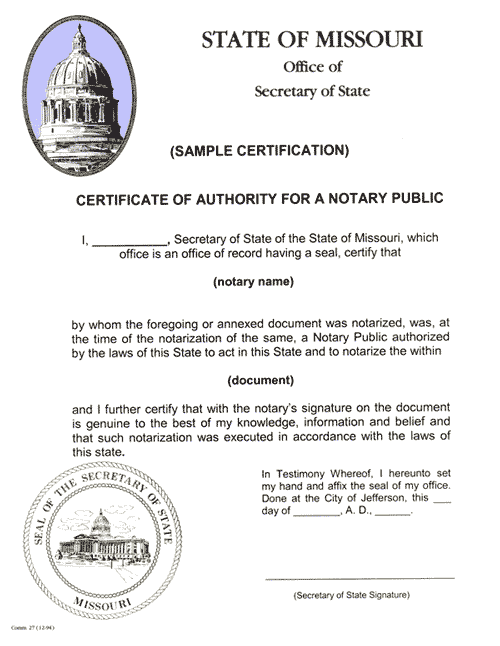County Clerk
There are several methods for having a business translation certified.
The most basic level of certification is the signature of the translator.
The second level of certification is notarization. The third level of business translation certification is County-clerk certification.
The final certification method, when it comes to accrediting a translation for use in another country, is an Apostille certification.
Example of a County Clerk Certification:
Why Would You Need More Than Basic Certification?
A translator’s signature is simply not enough to allow a document to be internationally recognized. In many cases, it is not even enough for domestic recognition.
When a translator signs off on a business translation without additional verification, it does not inspire confidence in the receiving party.
They have no way of verifying the signature is valid or the credentials of the translator. Several points of attention must be addressed.
Notarization vs. County-Clerk Certification
When you need verification of a business translation, two methods are most commonly used, notarization and county-clerk certification. Notarization is available in many places in the United States, most banks, realtors, accounting firms, and law firms have a notary public in the office who will be happy to notarize your business translation for a small fee.
Some businesses offer the service gratis. No additional certification is usually necessary for states where the notary public’s signatures are on file with the Secretary of State.
However, in many states, the Secretary of State does not authorize notary publics, and County-Clerk certification is required as notarization on a business translation.
While in many cases, a simple notarization is enough to certify the document, if you need to obtain an Apostille certification, you may also need County-Clerk certification. Each state handles county-clerk certification differently, and the fees can vary.
Contact the local office to find out the process for obtaining a County-Clerk certification on your business translation. Suppose you have any questions regarding these issues. In that case, The Translation Company’s customer service will gladly answer any questions about getting the certifications you need at the quality and price all our customers deserve.
You Can Never Be Too Safe With Translations
In states where the notary public’s signature is on file with the Secretary of State, the county clerk can certify the notary public’s signature, adding another verification level to the business translation. Doing business internationally requires respect and patience on both sides.
A document that has received notarization and county-clerk certification is significantly more reliable than a document with only the basic translator’s signature.
To avoid trust issues, obtaining the highest level of certification your translation may need for passing various levels throughout the industry it will be used for is often suggested. This can streamline the process of getting your documents recognized overseas.

